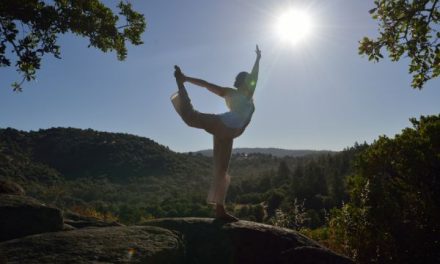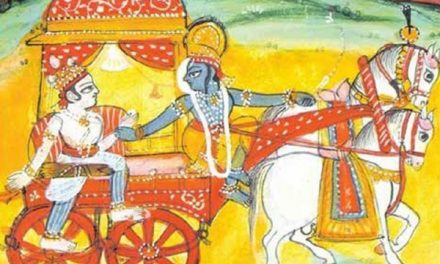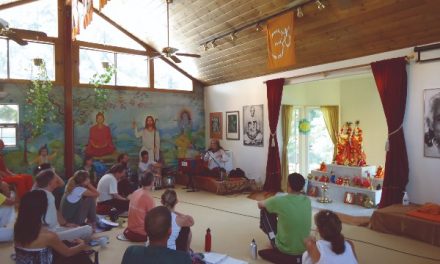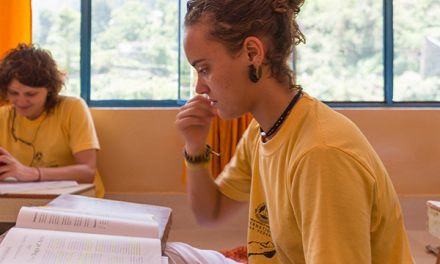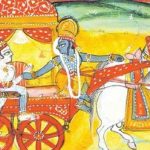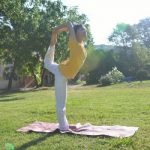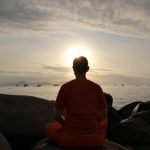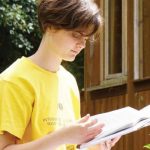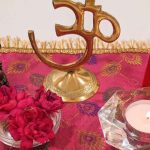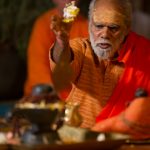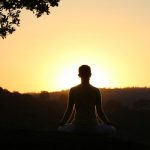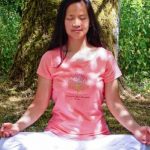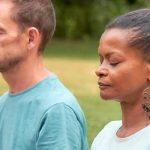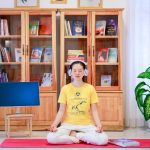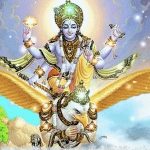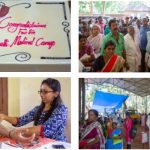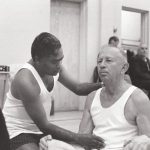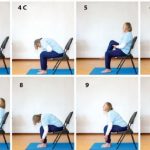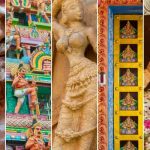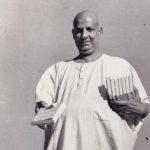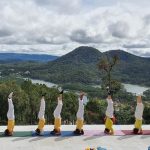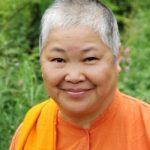 How To Learn From The Spiritual Masters And Become Wise
How To Learn From The Spiritual Masters And Become Wise
by Swami Sitaramananda
The Desire for Knowledge
First you need to know that you do not know and you need to know that someone does know. This attitude will help you to be receptive to meeting with those who have the ultimate knowledge of reality and will help you to be humble enough to receive such knowledge.
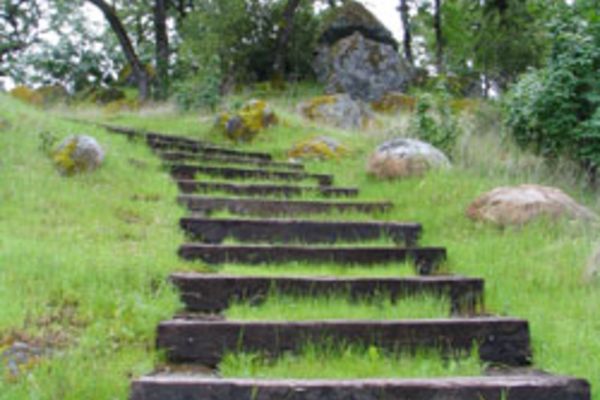 The sincere inner desire to know the truth leads your way in this search. With this attitude, you seek out a teacher and are able to recognise the teacher. It is said that the teacher appears in front of you when you are ready. In other words, divine grace will allow you to recognise and appreciate the teacher when your sincere desire to know the truth has ripened.
The sincere inner desire to know the truth leads your way in this search. With this attitude, you seek out a teacher and are able to recognise the teacher. It is said that the teacher appears in front of you when you are ready. In other words, divine grace will allow you to recognise and appreciate the teacher when your sincere desire to know the truth has ripened.
In the same manner, you cannot desire to have a husband if you are not ready to be a wife and vice versa. Why? Because husband/wife is a relationship and similarly student/teacher is a relationship. To find a spiritual teacher, you need to have the spiritual readiness to learn and to self-transform, ultimately to surrender to the truth conveyed and embodied by the teacher. It is not sufficient for you to be exposed to knowledge; you need to drink deep from it. The teacher and the knowledge might impress you but are you ready to dive into it?
Misunderstanding
In general you are so much involved in the external vision of yourself as a physical body in the material world, that initially it takes sometime to turn the mind around and begin to differentiate the “I” as distinct from the physical; to recognise that there is a more subtle reality, that of mind and spirit. In this undeveloped state of mind, often you misinterpret the teachings of the teacher, not under- standing why everything seems so complicated and why there seems to be a need to apply hair-splitting logic to know oneself.
You mistake your mental habits, your various identifications and attachments to be your Self, and you are unaware of the links between your lifestyle and your happiness and how these innocent private prefer- ences contribute to your confusion and unhappiness. The teacher will talk of the nature of your suffering and the nature of your mistakes in perception, and you will mis- interpret, thinking that the teacher talks about someone else and not you. The teacher will talk of the nature of true bliss, and you compare this to your temporary experience of conditioned happiness.
The teacher will talk of the nature of your real Self and you will equate it to the specifics of your ego-self. In fact you have no clue what the teacher is talking about! What he or she says may fly over your head or may make you feel uncomfortable. You might argue internally. For example the teacher says that you are eternal bliss, that bliss is your true nature. You might argue with it. You might think inside that it is not true; you are quite content with glimpses of peace, but do not understand the concept of bliss absolute.
Your personal experience is of the constant ups and downs of life and you think the teacher is over-optimistic or un- realistic or even absurd to say that life is only bliss and existence, no death, no pain. It makes no sense. You do not understand that, without the background of eternity, you will not have the correct perspective to appreciate the truth of present life.
To learn from the teacher, you need to meet him/her at his level with faith; the teacher will then meet you at your level with love. Swami Vishnudevananda used to teach the highest philosophy mixing it with simple words such as pizza, banana, ice cream. He used to point out with humour our delusion and laugh so heartily that we also started laughing at own mistakes and learned with- out taking ourselves so seriously.
The Process of Learning: Hearing and Hearing Again
You need to hear the teachings again and again from the teacher, not only through reading but most importantly through listening, hearing the teachings. Hearing with an open attitude. You need to meet with the teacher in person because you need to bring the learning to a personal, physical, experimental, real level. Hearing and seeing together produces tremendous learning.
The process of learning then comes not just through the intellect or imagination—both of which can be dismissed easily—but through tangible, real life, real involvement of the heart, head and action. This process of absorption of the Truth through tuning to a living wise person is not an instantaneous process. It is to be carried on over time. You will have to hear and hear again, until the knowledge is absorbed into your very own heart. You will have to have satsang again and again until you vibrate on the same wavelength as the teacher.
Contemplation: Thinking and Thinking Again on the Words of the Teacher and Scriptures
In Vedanta and Yoga philosophy, it is said that you will have to contemplate on an idea even if you might not agree or it is not your experience now. You have to con- template on the idea that has been transmitted to you by those enlightened souls or the masters who have experienced it. The great masters have experienced bliss absolute. They say so; you have not had the experience but you have to think about it. The process is you think, contemplate on it and you realise by this process of thinking just how your thinking is wrong on certain points. It is not that what they say is incorrect, it is that your thinking process somehow prevents you from understanding or perceiving what they say.
There is a technique in Vedanta called self-inquiry. The practice of self-inquiry is to question the way you think about yourself. You question the way you think about yourself because you heard it from the master. You have faith that what they say is correct. You do some think- ing based on what they say, having faith that what they say is correct. Then you realise what they really say is in your own heart. That is the purpose of self-enquiry and contemplation.
It requires some thinking from you, that thinking you have to do yourself. It is not for the teach- er to think for you. The master did the thinking and the scripture conveyed the knowledge. The teacher can ex- plain it, but you will have to do the thinking for yourself until you understand it and make it yours. You have to realise it yourself in this self-inquiry, because it is about you. The question starts with “ Who am I?”
Most of the time people do not like to think about “Who am I”, be- cause it requires a lot of thinking. Most people do not like to think. They will say, “Tell me what I need to believe in and I will be fine. I trust you.” The process of learning is not a process of blind believing. You will have to think and realise it yourself as nobody can save you except yourself. Swami Vishnudevananda would say all the time: “If you are hungry, you have to eat for yourself. No-one can eat for you.” You yourself have to do the thinking and the straightening out of your own mind. The teacher might study your mind and might know your mind and might point out your obstacles. Yet, you will have to think about it and realise it for yourself.
Realisation is in a Moment
A student is like a child in a hurry to grow up. “ How old are you?” you ask the child. “I am 6 years and a half”. For a spiritual student, it is similar. Every effort costs the student much, and he/she is in a hurry to get ‘there’ even though not knowing where ‘there’ is, nor how it looks. Students are mystified when hearing that realisation takes no effort, it just takes a moment! Eureka, I know! Yes, it takes no effort and it takes no time—realisation is instantaneous, but the problem is that it takes lifetimes to be ready for that moment.
Yoga says: your right is to work, but not with its fruits. Your duty is to think and contemplate but not with ex- pectation of results. Keep tuning to the teacher’s thought wavelength, practise the system of learning they have set up for you to learn. Practise, practise, practise, con- template, contemplate, contemplate the teaching and let go of all expectation.
This talk was given on the holy day of Guru Purnima, celebrations in honour of the Guru.
Swami Sitaramananda is a direct disciple of Swami Vishnudevananda and an acharya of the Sivananda Yoga Vedanta Centres. She is the director of Sivananda Ashram Yoga Farm, California and the Sivananda Ashram Yoga Resort and Training Center in Dalat, Vietnam.

